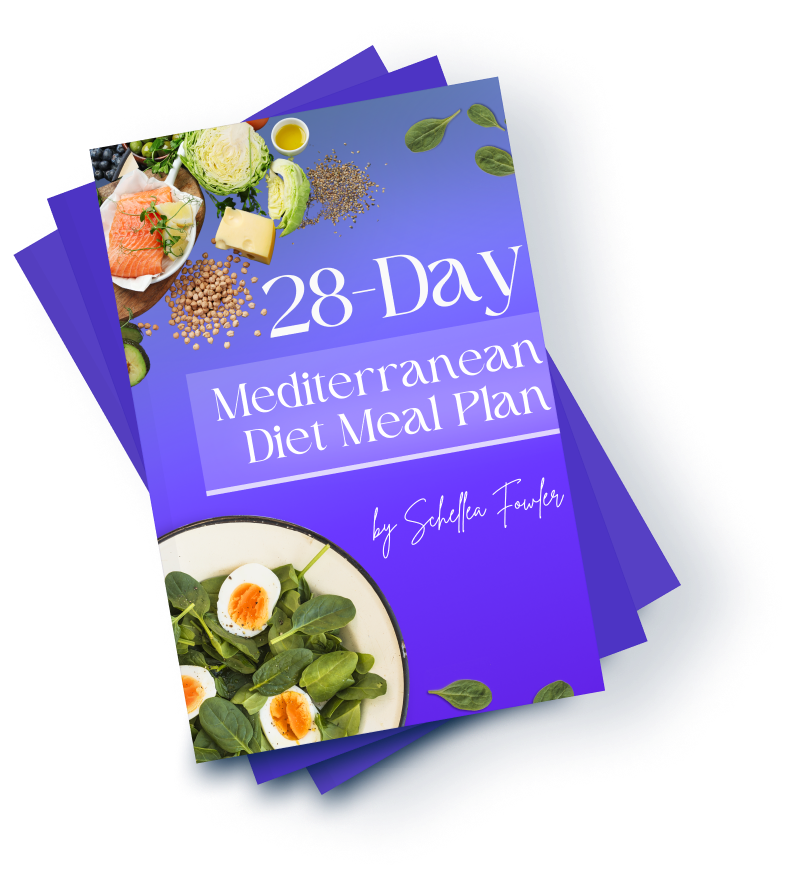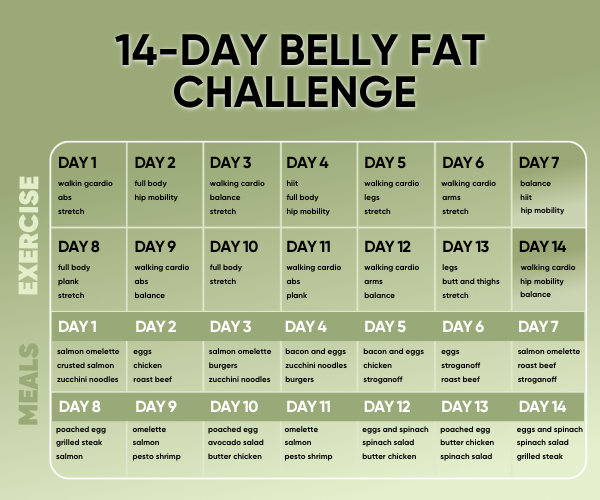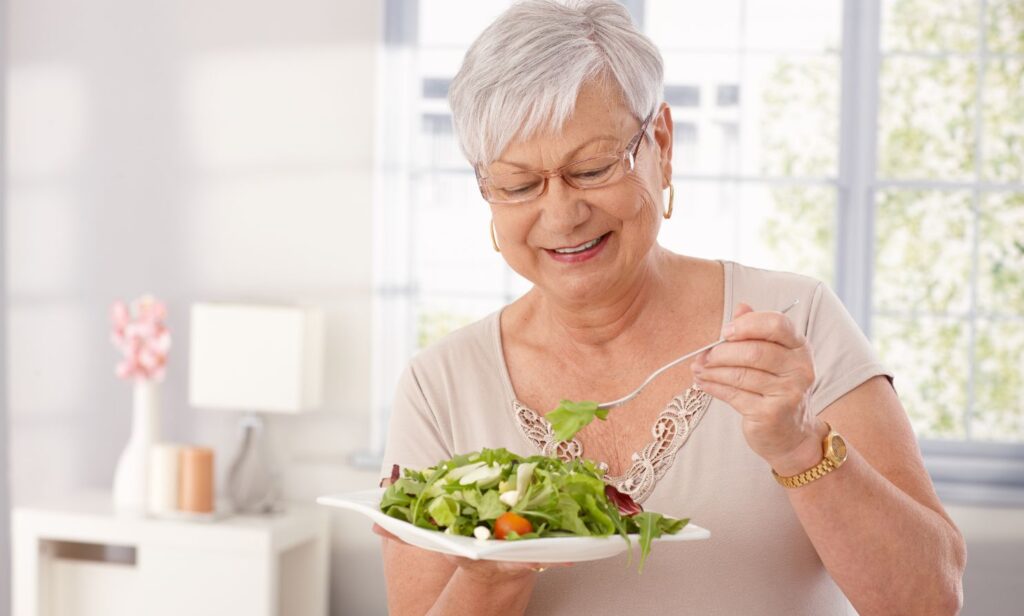
The Mediterranean Diet has gained significant popularity in recent years for its numerous health benefits and its potential as a blueprint for healthy aging.
Originating from the Mediterranean region, this diet is not just a way of eating but a way of life that promotes longevity and overall well-being.
Many people say that the Mediterranean diet is good for your health, especially for women over 50. It comes from the way people eat in the Mediterranean, where health is better and people tend to live longer. People in certain parts of the world are said to live very long and healthy lives. These are called “Blue Zones.”
So, if you’re a woman over 50 looking to stay healthy and feel great as you age, the Mediterranean diet might be something worth trying. It’s all about eating lots of fruits, veggies, whole grains, and healthy fats, and enjoying meals with family and friends. It’s not just about what you eat, but also about how you eat and the lifestyle you lead.
Let’s further take a look at how and why the Mediterranean diet is a blueprint for healthy aging, and how you can adopt this diet into your lifestyle.
What’s the Mediterranean Diet?
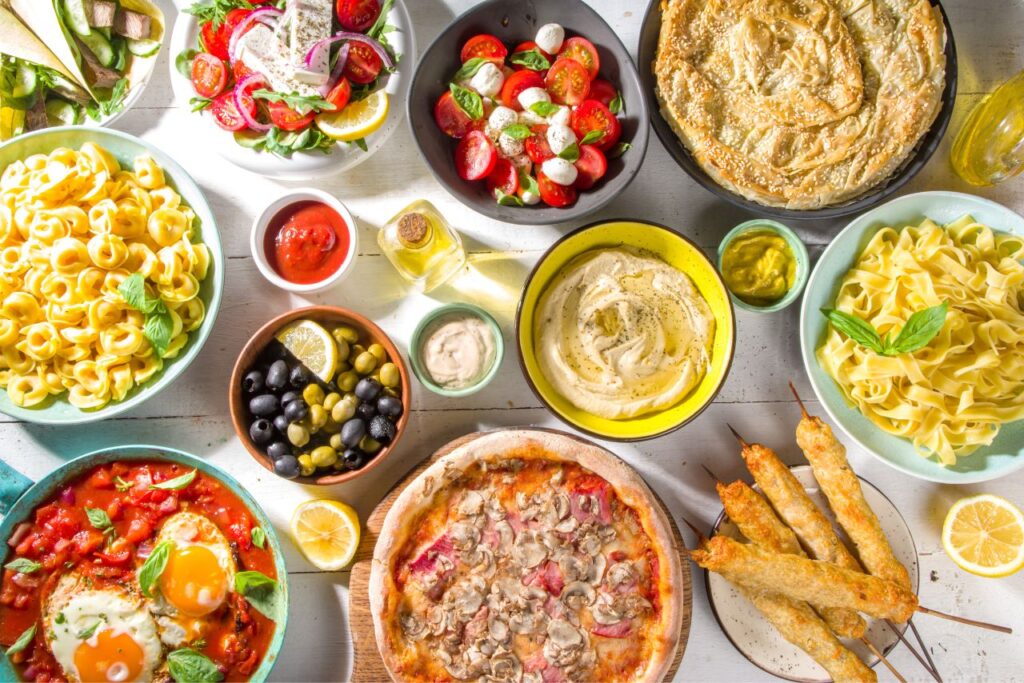
The Mediterranean Diet is based on the way people in places like Greece, Italy, and Spain have traditionally eaten, which has led to good health and a long life.
The diet emphasises the consumption of whole, unprocessed foods that are rich in nutrients and low in saturated fats. It is characterised by an abundance of fruits, vegetables, whole grains, legumes, nuts, and seeds.
Olive oil, which is high in monounsaturated fats, is the primary source of fat in this diet. Fish and seafood are consumed regularly, while red meat is limited. Moderate consumption of dairy products, such as cheese and yogurt, is also encouraged.
Along with regular exercise, the Mediterranean diet encourages people to enjoy meals with family and friends.
Is the Mediterranean Diet Good for Healthy Aging?
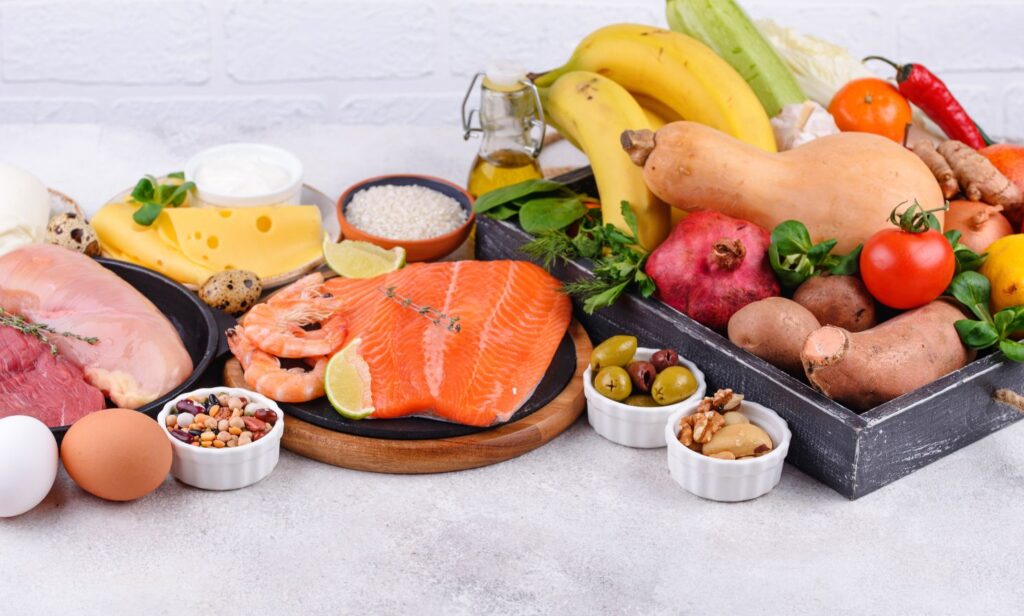
The Mediterranean Diet has been extensively studied and has been associated with numerous health benefits, particularly in relation to healthy aging.
According to research, this diet can lower the risk of chronic diseases like heart disease, diabetes, and cancer. A diet rich in fruits and vegetables provides vitamins, minerals, and antioxidants to fight oxidative stress and inflammation.
Enriched with fiber, whole grains and legumes aid digestion and weight management. Eating omega-3-rich fish and seafood can improve cognitive function and reduce cognitive decline.
In addition, the Mediterranean diet has been linked to a lower risk of depression and better mental health.
There is evidence that the Mediterranean diet is good for your health from many scientific studies. According to a study, more than 7,000 people were followed for five years. Researchers discovered that people who closely followed the Mediterranean diet had a 30% lower risk of heart disease than people who stuck to a normal, low-fat diet.
The Journal of the American Medical Association published another study that found people who followed the Mediterranean Diet had a lower risk of getting type 2 diabetes, even if they were already at a high risk for the disease.
These and other studies show that the Mediterranean diet is an effective way to improve health and avoid chronic diseases.
READ ALSO: The Best Diets for Weight Loss For Women Over 50
The Key Components of the Mediterranean Diet
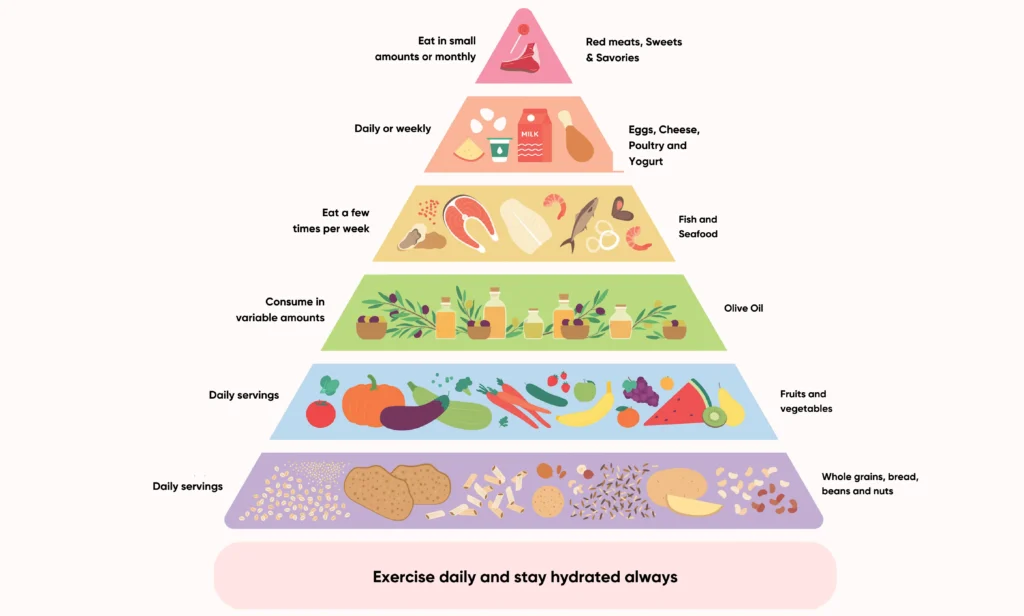
The Mediterranean Diet is a lifestyle rooted in the culinary traditions of the Mediterranean region. It’s a diet plan that focuses on whole, nutrient-dense foods, which has become popular because it is good for your health in many ways, especially for women over 50.
The diet is based on a variety of key components that contribute to its health-promoting effects. Let’s take a look at them;
1. Abundance of Fresh Fruits and Vegetables
Fruits and vegetables should be a big part of every meal. These colorful plant foods are full of antioxidants, vitamins, and minerals that are good for your health and vitality.
2. Heart-Healthy Fats
Choose healthy fats like olive oil, nuts, seeds, and fish with a lot of fat, like salmon and mackerel. These unsaturated fat sources help lower the risk of heart disease and inflammation, two problems that a lot of women over 50 worry about.
3. Whole Grains
Solid carbs are not as good for you as whole grains. Whole grain foods, like quinoa, brown rice, and whole wheat bread, give you long-lasting energy and important nutrients, which is good for your health and makes you feel full.
4. Lean Protein Sources
Eat foods that are high in lean protein, like chicken, beans, and seafood. Protein is very important for keeping your muscles, bones, and body working well, especially as you get older.
5. Moderate Wine Consumption
Enjoy wine in moderation, particularly red wine, as part of the Mediterranean diet. Red wine has antioxidants in it, such as resveratrol, which may be good for your health in many ways, including protecting your heart.
READ ALSO: Keto Craze: Is Keto Diet Safe for Older Women?
How to Adopt the Mediterranean Diet

Adopting the Mediterranean Diet can be a gradual and enjoyable process. Here are ways you can adopt the diet for healthy aging over 50:
1. Start gradually
It can be hard to start a new eating plan, especially for women over 50. Start by making easy-to-handle changes to the way you eat, like adding an extra serving of vegetables or switching from refined grains to whole grains.
Try to eat five servings of fruits and vegetables daily. Use olive oil instead of butter and margarine to dress salads or dip bread. Eat fish and seafood two to three times a week and limit red meat.
Choose nuts and seeds over processed snacks and natural yogurt over sugary desserts.
2. Experiment with flavors
The Mediterranean Diet’s focus on flavorful foods and creative cooking is one of its best parts. Try adding herbs, spices, and citrus fruits to your food to make it taste better without using too much salt or sugar.
3. Plan ahead
Meal planning is very important if you want to stick to the Mediterranean Diet. Keep basic foods like olive oil, whole grains, beans, and fresh fruits and vegetables in your kitchen, and plan your meals for the week ahead to make sure you get enough variety and nutrition.
Watch out for portion sizes. Even though the Mediterranean Diet suggests eating healthy foods, it is still important to eat in a balanced and moderate way.
Lastly, share meals with family and friends to make them a social event. Not only does this make food taste better, but it also improves your mood and overall health.
4. Exercise regularly
Stay active and incorporate regular physical activity into your routine. It is especially helpful for women over 50 to follow this well-known eating plan along with a regular exercise routine.
Combining the Mediterranean diet with regular exercise can help you lose a lot of weight. The nutrient-dense, portion-controlled meals of the Mediterranean Diet go well with exercise because it helps burn calories, build lean muscle mass, and speed up the metabolism.
Being active on a regular basis can give you more energy and fight tiredness, which are common problems for women over 50. Eating healthy foods from the Mediterranean diet and working out together give you energy that lasts all day.
A 150-minute weekly workout of walking, swimming, cycling, or dancing can improve heart health, endurance, and weight. Strength training, resistance exercises with weights, or bodyweight, and flexibility and balance activities help maintain muscle mass, bone density, posture, and fall risk, especially as you age.
5. Stay hydrated
Drinking enough water is important for everyone’s health, but especially for women over 50. For better body function and to stay hydrated, eat foods like cucumbers, melons, and citrus fruits.
READ ALSO: 25 Essential Superfoods Women Over 50 Can Eat Daily for Longevity
Mediterranean Diet Recipes and Meal Ideas
Here are a few Mediterranean diet recipe ideas to try:
Greek Salad: Toss together tomatoes, cucumbers, red onions, olives, and feta cheese. Drizzle with olive oil and sprinkle with oregano for a refreshing and flavorful salad.
Grilled Fish with Lemon and Herbs: Marinate a fillet of fish, such as salmon or sea bass, in a mixture of lemon juice, olive oil, garlic, and herbs. Grill until cooked through and serve with a side of roasted vegetables.
Chickpea and Vegetable Stew: Sauté onions, garlic, and your choice of vegetables in olive oil. Add cooked chickpeas, vegetable broth, and herbs. Simmer until the flavors meld together and serve with crusty whole grain bread.
Mediterranean Quinoa Salad: Cook quinoa according to package instructions and let it cool. Mix in chopped tomatoes, cucumbers, bell peppers, olives, and feta cheese. Drizzle with olive oil and lemon juice for a light and nutritious salad.
28-Day Mediterranean Diet Meal Plan for Women Over 50
Feel Lighter, Stronger, and More Energized—One Delicious Meal at a Time!
Packed with easy, flavorful recipes, this plan is your secret to shedding stubborn weight, boosting energy, and improving overall well-being.
Get your copy now and start your journey to a healthier you—don’t wait!
Closing Thoughts
The Mediterranean Diet promotes healthy aging by eating whole, nutrient-dense foods and staying active. Scientific research supports its many health benefits, making it an ideal blueprint for healthy aging.
You can improve your health, longevity, and well-being by following this diet and gradually changing your diet.
Start your healthy aging journey today by adopting the Mediterranean lifestyle. Eat more vegetables, whole grains, fruits, and healthy fats. Stay active and eat with your family and friends.
Live the Mediterranean way for a healthier, happier future.
Remember that you should always talk to a doctor or nurse before starting a new diet or exercise plan. They can give you advice based on your health history and what you need right now.
♡ Love ♡,
Schellea

